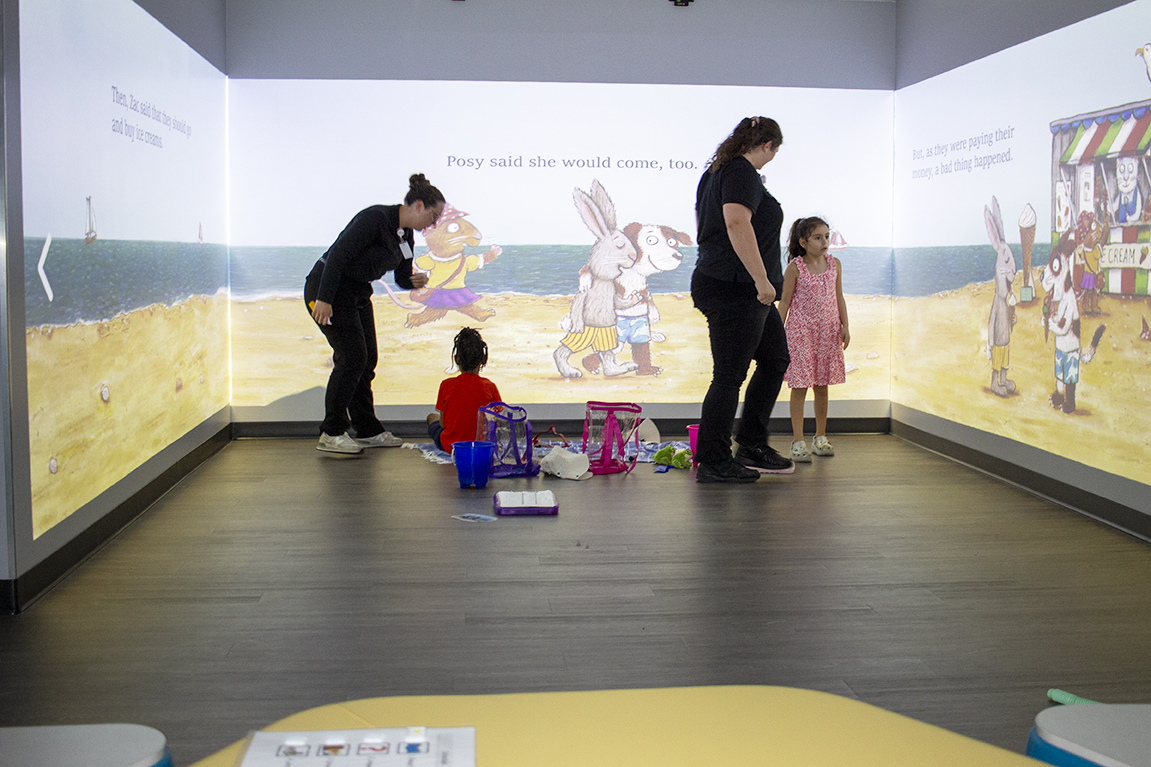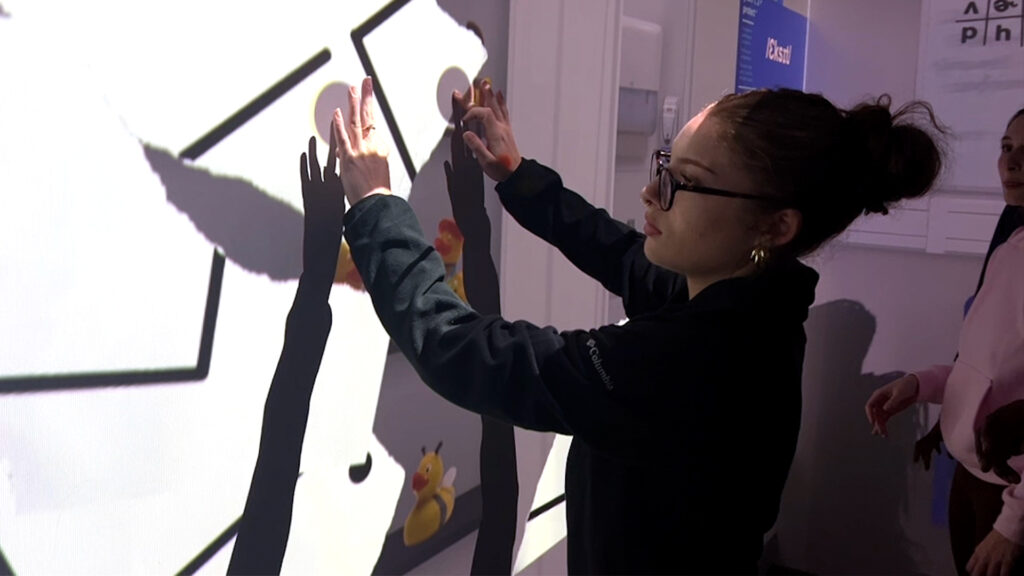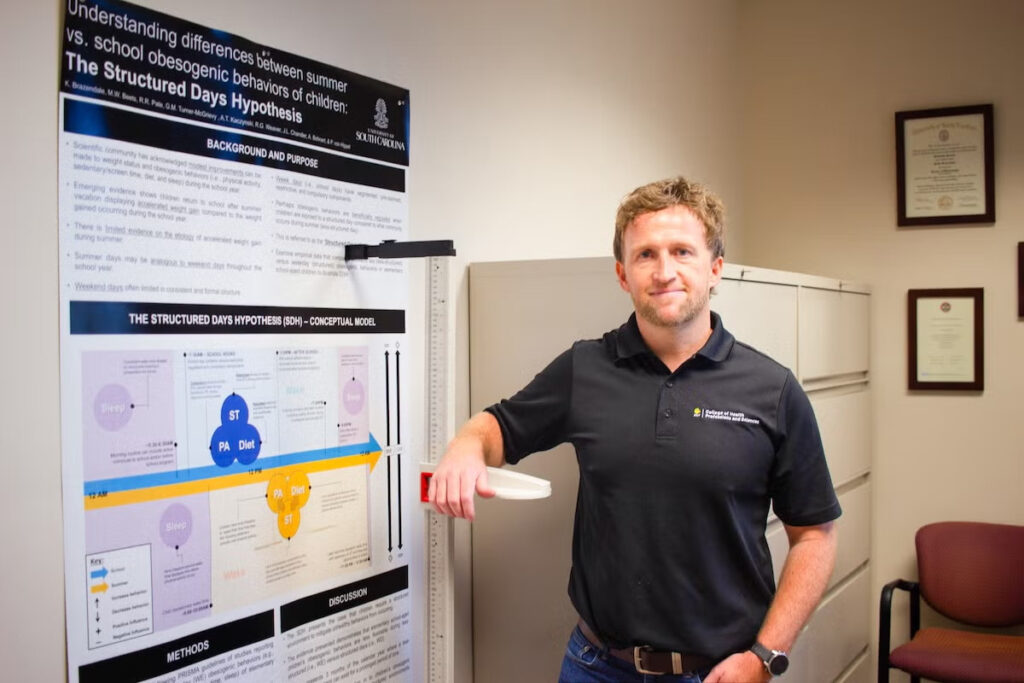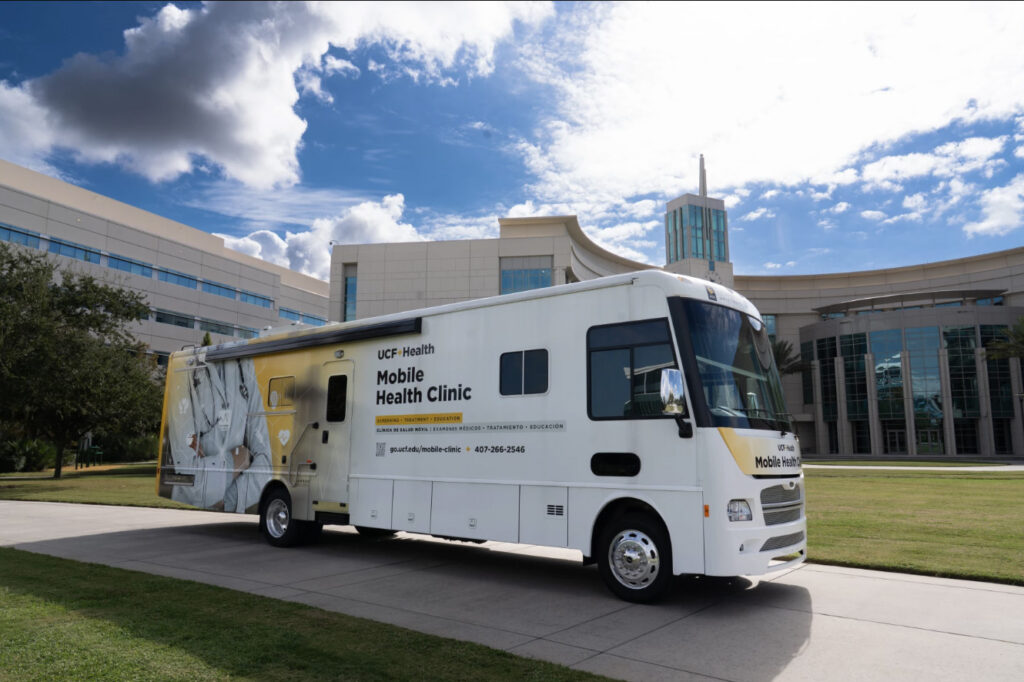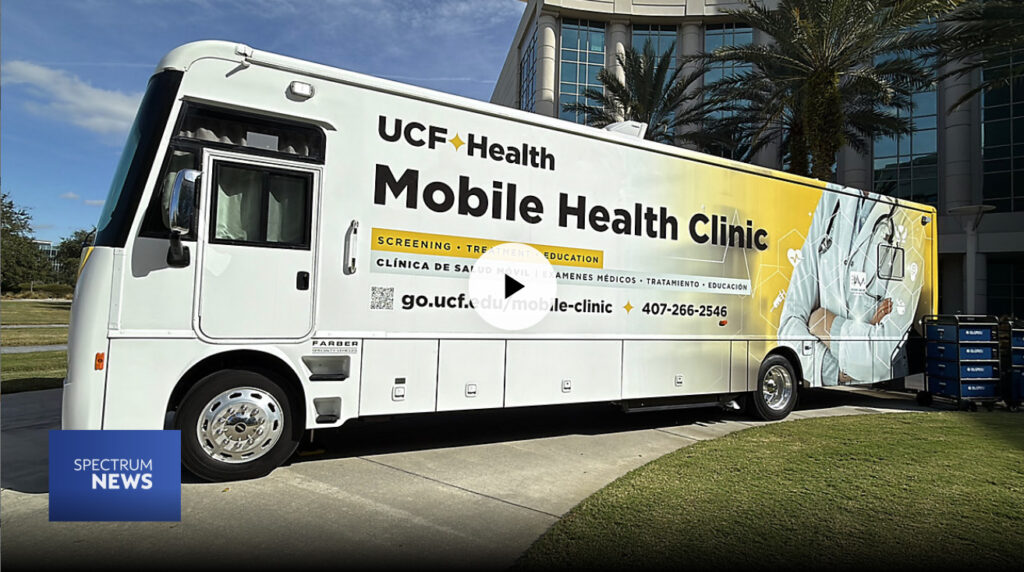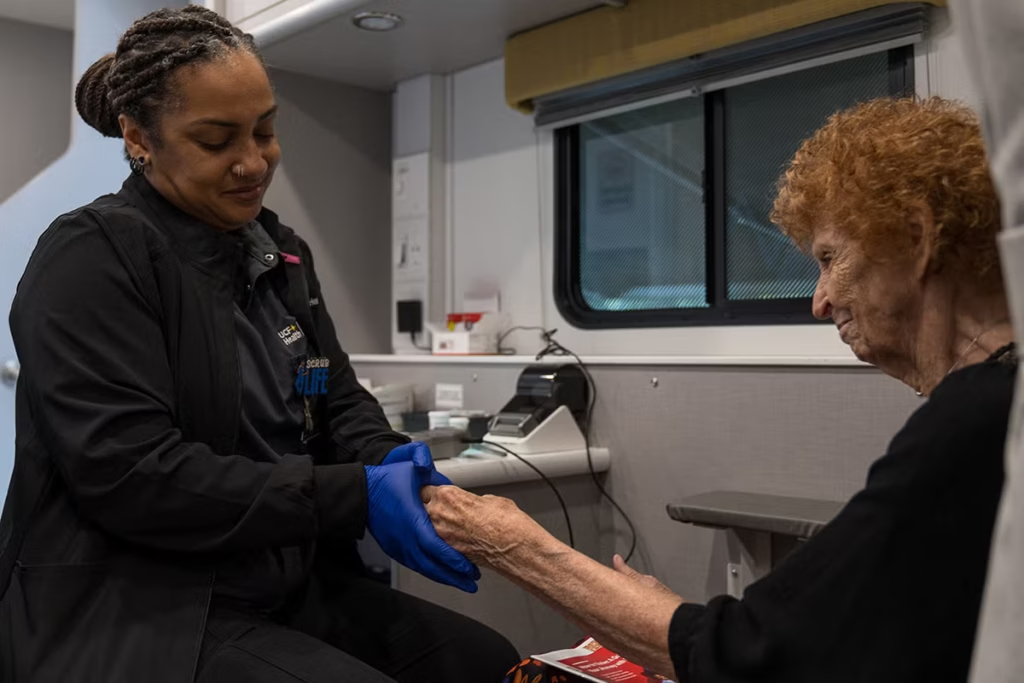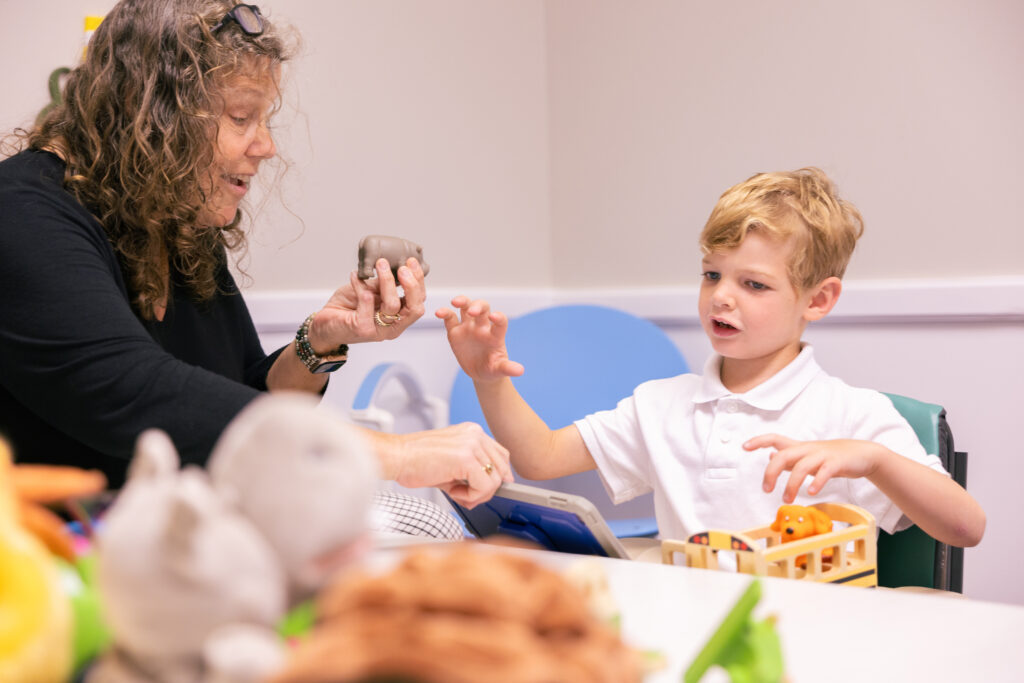The Communication Sciences and Disorders Clinic has been offering reading programs to the Orlando community for the last four years and recently introduced a new, high tech way of learning to children attending summer literacy camps. Thanks to a donation from Variety – the Children’s Charity of Florida, the clinic is integrating the unique technology available in the Blended Learning Interactive Simulation Suite, or BLISS, to help children develop reading skills.
Camp iREAD is an intensive two-week summer curriculum that targets literacy in students with autism spectrum disorder (ASD) in preschool to third grade. Last summer, several books were developed in BLISS and children in Camp iREAD interacted with the stories in the space. It was so popular that this summer the CSD Clinic launched a 6-week clinical research study called “Reading Adventures” that uses BLISS in the curriculum. Through their research, Clinical Instructor Carrie Loughran, Assistant Professor Nancy McIntyre and Associate Professor Jacqueline Towson are examining engagement during shared reading sessions and its correlation with reading comprehension levels.
BLISS, which is housed inside the college’s Rehabilitation Innovation Center, immerses learners in a 270-degree room that can simulate any real-life or created scenarios. The clinic is often striving to think outside of the box for patients and this is no exception. Loughran knew that she wanted to use the BLISS space in a unique way to facilitate the camps she was already running. The highly immersive room projects the sights and sounds on the three walls. A book about the beach may project the sounds of waves and seagulls along with the illustrated pages of the book. Students can interact with elements and touch the walls to progress the story. The curriculum also utilizes real-life props, like shovels, beach towels, and play ice cream cones to complement a story about a day on the beach. Graduate student clinicians facilitate small group read-alouds, support the children in acting out the actions in the book, and provide props to bring real life meaning to the literature.
Loughran explains that the group reading activity, known as shared reading, helps the students better engage with and grasp the material in order to contextualize it into the world they know. “Taking [children] out of a traditional therapy room is always my goal,” she says. “We try to contextualize the information as much as possible so that it’s meaningful, and so that they understand that these pages that they’re looking at — there’s actually information in there that means something that they either know, or they don’t know, but they are going to learn to know.”
During Reading Adventures, books come alive on the floor-to-ceiling touchscreen walls of BLISS, accompanying the words being read aloud to the students. In another room, the same books are being read aloud without the added technology and in a more traditional way. The differences in reading comprehension and engagement are being studied and documented to see what impact BLISS has on the students as opposed to a traditional, read aloud experience.
According to a report published by the Florida Literacy Coalition in 2020, 1 in 4 adults in Florida are at or below literacy level 1, meaning they are not able to complete basic tasks, such as fill out forms. The team began this project to improve literacy of children in the state. The goal is to take the findings of this study, find a way to make it scalable for schools and then expand into local schools and communities to strengthen student reading abilities across the region.
McIntyre says that shared reading is good for children with ASD and related challenges, but they sometimes have trouble paying attention, and intervention at a young age can improve skills and focus. “We’ve thought a lot as we’ve conducted our reading camps the last couple of years that we really need to enhance the engagement piece. So, we get them acting out the stories and talking about the stories,” she says. “BLISS comes in because we think that having the children be able to walk in and have the story surrounding them will be an additionally motivating piece to get them fully engaged and immersed in the story. Our ultimate goal is enhancing their story comprehension through engagement.”
Through this study and the programs offered through the clinic, Loughran and the team are striving to work toward a goal of improved literacy in children, and donations from organizations like Variety are allowing the foundation to make that happen.
“We are so grateful to Variety – the Children’s Charity of Florida for providing the means that will allow these children to participate in an exciting immersive experience that could potentially change the way they understand books and comprehend the world around them,” Loughran says.
